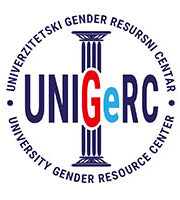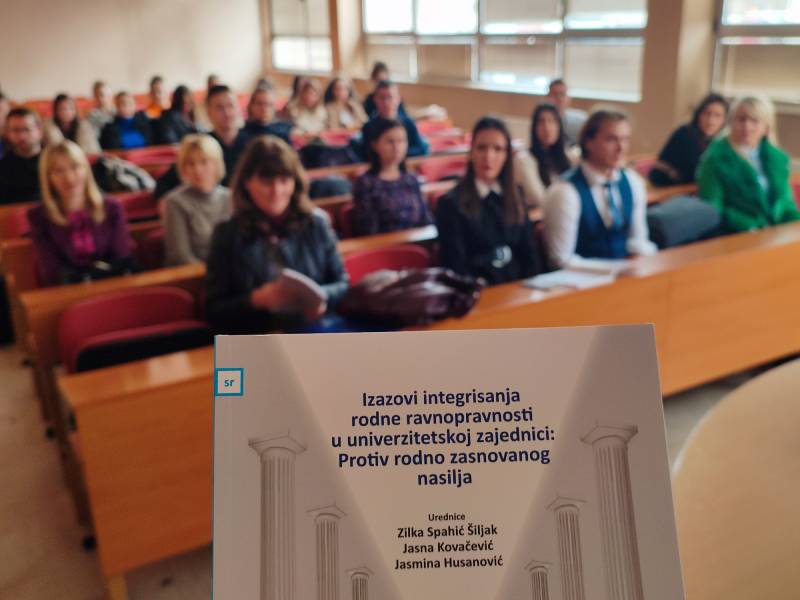The promotion of the publication “Challenges of integrating gender equality in the university community: Against gender-based violence” was held at the Law Faculty of the University of East Sarajevo. The book was created as a result of multidisciplinary research carried out as part of the UNIGEM project, in which 19 universities from Bosnia and Herzegovina, Serbia, Montenegro, and Croatia participate, including UES, and which is carried out by the TPO Foundation from Sarajevo with the financial support of the United Kingdom Government.
The speakers at the promotion were prof.Ph.D. Jelena Krunić, vice-rector for science, research, and development of the University of East Sarajevo, assistant professor. Ph.D. Marko Gutalj, vice-rector for international and inter-university cooperation of the University of East Sarajevo, and prof. Ph.D. Branka Kovačević, professor at the Faculty of Philosophy in Pale. On behalf of the UES Faculty of Law, the speaker was prof.Ph.D. Goran Marković, dean of the Faculty of Law, who, in addition to assistant professor Ph.D. Sanja Kreštalica, also a professor at this faculty, is a member of the Advisory Board of the UNIGEM project.




The research promotion was also attended by prof.M.Sc. Sandra Ivanović, president of the Board of Directors of the University of East Sarajevo and coordinator of the project on behalf of the UES Faculty of Law, assistant professor Ph.D. Sanja Golijanin, and senior assistant dr. Dragana Damjanović, from the UES Faculty of Law.
After the introductory presentations, the presenters and students took part in a meaningful discussion, during which questions were asked and opinions were expressed about the problems of gender equality. Students showed great interest in this topic, presented their views, and stated that they consider the topic to be very important and current.





The research of the UNIGEM project used the most modern approach from methodological, sociological, psychological, cultural, theological, social, philosophical, and other perspectives. It had 4,754 respondents, including teaching and administrative staff, as well as students from various scientific fields.
The important conclusions of the research point to the fact that gender-based violence often occurs in combination with other types of violence, including mobbing, that it has a negative impact on the health, well-being, and careers of women and men, and that it is a phenomenon whose health and economic costs can be significantly reduced if prevented. Its key findings are: 80% of the interviewed persons know that their colleagues have experienced sexual and gender-based violence and/or discrimination, 75.8% of teachers in the region do not know whether procedures for sanctioning perpetrators have been initiated, 61% of the interviewed persons have experienced sexual harassment or sexual violence. Also, the findings show that there is no transparent and open communication about gender-based violence at universities.
The research book was edited by: prof. Ph.D. Zilka Spahić Šiljak, prof. Ph.D. Jasna Kovačević and prof. Ph.D. Jasmina Husanović and was published in Bosnian, Montenegrin, Croatian, and Serbian languages.



